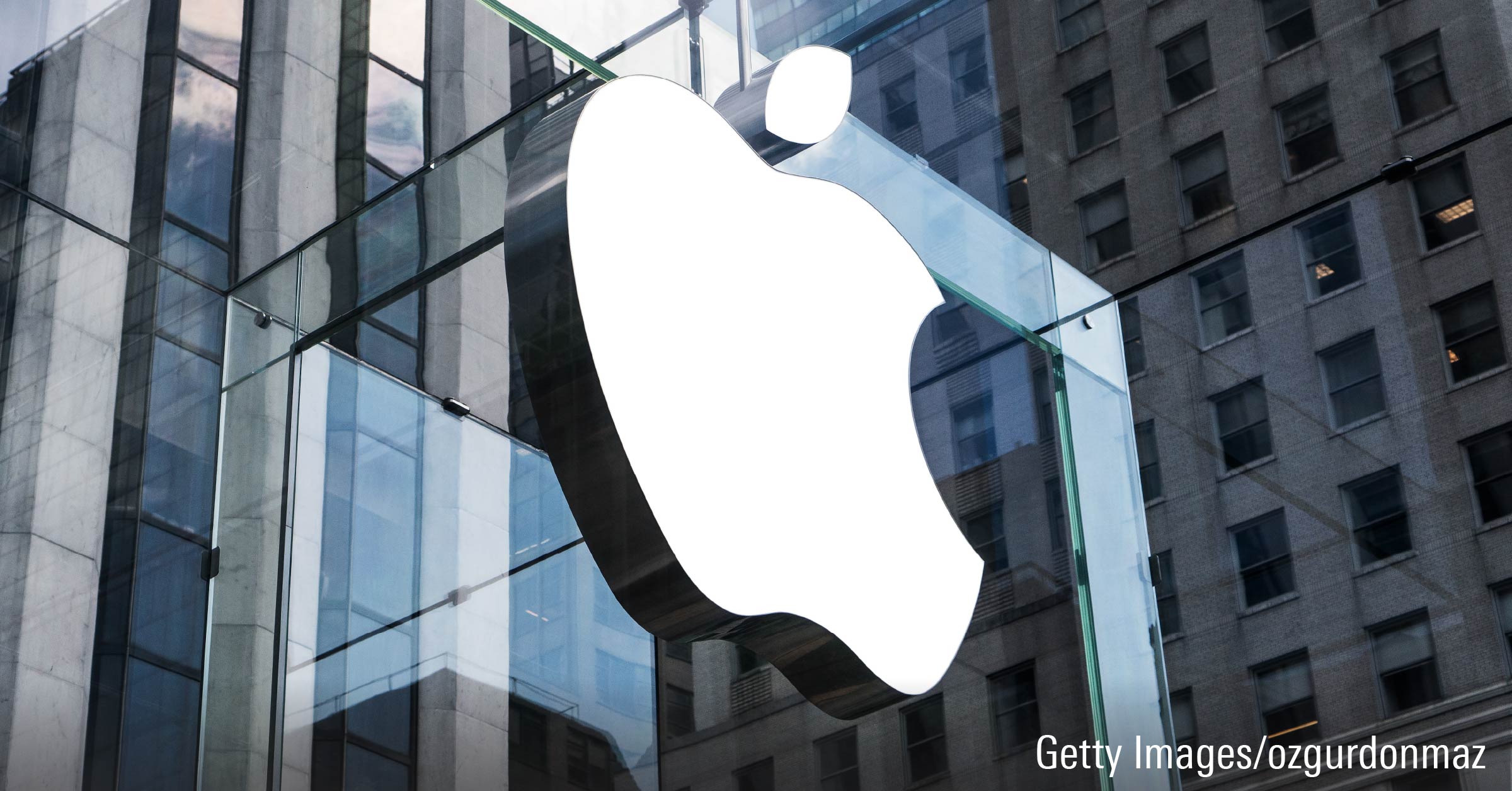After Earnings, Is Apple Stock a Buy, a Sell, or Fairly Valued?
With an improved outlook for iPhone sales, here’s what we think of Apple stock.

Apple AAPL released its fiscal second-quarter earnings report on May 2. Here’s Morningstar’s take on Apple’s earnings and the outlook for its stock.
Key Morningstar Metrics for Apple
- Fair Value Estimate: $170.00
- Morningstar Rating: 3 stars
- Morningstar Economic Moat Rating: Wide
- Morningstar Uncertainty Rating: Medium
What We Thought of Apple’s Earnings
We’ve raised our fair value estimate for Apple to $170 per share from $160 due to higher expectations for iPhone revenue in fiscal 2025. The quarter’s results were in line with our expectations. iPhone sales were weak as the company encountered headwinds from domestic competition in China and slowing consumer refresh cycles. Profitability was quite good, as Apple benefits from a higher mix of service sales and more premium product sales.
We anticipate Apple will unveil a generative AI product at its developer conference in early June. We believe early features will be integrated into the iPhone 16 lineup, which will be released later in calendar 2024 (early in fiscal 2025). We believe full features may require upgraded hardware on these new products, spurring more consumers to refresh their models.
Apple Stock Price
Fair Value Estimate for Apple
With its 3-star rating, we believe Apple’s stock is fairly valued compared with our long-term fair value estimate of $170 per share. Our valuation implies a fiscal 2024 adjusted price/earnings multiple of 26 times, a fiscal 2024 enterprise value/sales multiple of 7 times, and a fiscal 2024 free cash flow yield of 5%.
We project 6% compound annual revenue growth for Apple through fiscal 2028. The iPhone will be the greatest contributor to revenue over our forecast, and we project 3% growth for iPhone revenue over the next five years. We expect this to be driven primarily by unit sales growth, with modest pricing increases. We think pricing increases will be driven primarily by higher features and a mix shift toward the more premium Pro models.
Read more about Apple’s fair value estimate.
Apple Stock vs. Morningstar Fair Value Estimate
Economic Moat Rating
We assign Apple a wide moat, stemming from customer switching costs, intangible assets, and a network effect.
In our view, Apple’s iOS ecosystem extends far-reaching, sticky tendrils into customer wallets, entrenching them with software capabilities and integration across disparate devices like the iPhone, Mac, iPad, Apple Watch, and more. We also see immense design prowess at Apple, most impressively from its deep integration of hardware, software, and semiconductors to create best-of-breed products. Finally, we see a virtuous cycle between Apple’s affluent customer base and its vast ecosystem of developer partners. We believe Apple can leverage these qualities into continued economic profits over the next 20 years.
Read more about Apple’s economic moat.
Financial Strength
We expect Apple to focus on using its immense cash flow to return capital to shareholders while increasing its net leverage over the medium term. The firm has a terrific balance sheet, with a net cash position of $51 billion as of September 2023. Management has set a goal to eventually become cash-neutral, though there is no set timetable. We don’t anticipate the company to hit this target in the next five years, but it should progress toward it. Since announcing the goal in 2018, Apple has reduced its net cash position by more than half, from over $100 billion.
Read more about Apple’s financial strength.
Risk and Uncertainty
We assign Apple a Medium Uncertainty Rating. We believe the firm’s greatest risk is its reliance on consumer spending, which sees great competition and cyclicality. Apple is at constant risk of disruption, just as the iPhone disrupted BlackBerry in the budding smartphone market. The iPhone could be unseated by a new device or “super app.” Still, we view the firm as defending against this risk by introducing new form factors (like a watch and an augmented reality headset) and selling an ecosystem of software and services on top of hardware.
Read more about Apple’s risk and uncertainty.
AAPL Bulls Say
- Apple offers an expansive ecosystem of tightly integrated hardware, software, and services, which locks in customers and generates strong profitability.
- We like Apple’s move to in-house chip development, which has accelerated its product development and increased its differentiation.
- Apple has a stellar balance sheet and sends a great deal of cash flow back to shareholders.
AAPL Bears Say
- Apple is prone to consumer spending and preferences, which creates cyclicality and opens it to disruption.
- Apple’s supply chain is highly concentrated in China and Taiwan, making it vulnerable to geopolitical risk. Attempts to diversify into other regions may pressure profitability or efficiency.
- Regulators have a keen eye on Apple, and recent regulations have chipped away at parts of its sticky ecosystem.
This article was compiled by Leona Murray.
The author or authors do not own shares in any securities mentioned in this article. Find out about Morningstar’s editorial policies.

/s3.amazonaws.com/arc-authors/morningstar/ca129aad-9614-4bf0-993b-3df5f6bfa41e.jpg)
/cloudfront-us-east-1.images.arcpublishing.com/morningstar/4JOND5R2SBFPZE63XWPYQDG56A.png)
/cloudfront-us-east-1.images.arcpublishing.com/morningstar/K36BSDXY2RAXNMH6G5XT7YIXMU.png)
/cloudfront-us-east-1.images.arcpublishing.com/morningstar/BG4IFJHA25B6RKD3XNUYKROBBM.jpg)
:quality(80)/s3.amazonaws.com/arc-authors/morningstar/ca129aad-9614-4bf0-993b-3df5f6bfa41e.jpg)